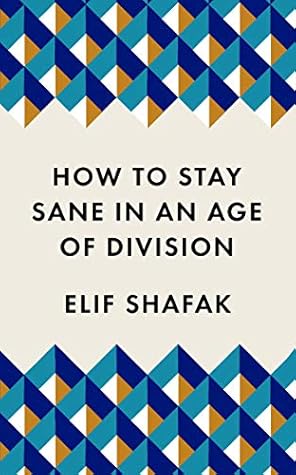More on this book
Community
Kindle Notes & Highlights
I had never before seen a woman so visibly broken, and yet stubbornly carrying on.
also felt ashamed because my first reaction had been to retreat into the safety of my flat as though I feared her melancholy might be contagious.
‘When all this is over, how do you want the world to be different?’ the signs asked.
When all this is over I want to live in a different world where I can be heard. It was a personal cry. But, in many ways, it felt like a collective cry too.
Not only management and authority, power and wealth, but also data and knowledge are increasingly concentrated in the hands of a few – and a growing number of citizens feel left out, not so much forgotten as never noticed in the first place.
To be deprived of a voice means to be deprived of agency over our own lives. It also means to slowly but systematically become alienated from our own journeys, struggles and inner transformations, and begin to view even our most subjective experiences as though through someone else’s eyes, an external gaze.
Stories bring us together, untold stories keep us apart.
The moment we stop listening to diverse opinions is also when we stop learning. Because the truth is we don’t learn much from sameness and monotony. We usually learn from differences.
if nearly all of my information comes from the same limited sources, day in, day out, it means that, deep within, I want to be surrounded with my mirror image 24/7. That is not only a suffocatingly claustrophobic setting, it is also a profoundly narcissistic existence.
More and more it feels that, when it comes to digital technologies, all the decisions are taken without us and despite us.
Today, social media and digital communication have both accelerated and heightened group narcissism. Stuck in our whispering galleries we have become bad listeners and even worse learners.
Nor will the post-pandemic landscape be solely about economic recession, high unemployment and a fall in the standards of living. What we are going through is also a crisis of meanings.
Any decision we make today will have long-term consequences reaching across several generations.
Motherlands are castles made of glass. In order to leave them, you have to break something – a wall, a social convention, a cultural norm, a psychological barrier, a heart. What you have broken will haunt you. To be an emigré, therefore, means to forever bear shards of glass in your pockets.
A human being, every human being, is boundless and contains multitudes.*
We inherit our circumstances, we improve them for the next generation.
Today the faith that tomorrow will be better than yesterday is simply no more.
Nothing has prepared them for the arrival of the hard, uninviting and inhospitable new world of downgrading, devaluation of earned merits, doors shown and locked, volatility of jobs and stubbornness of joblessness, transience of prospects and durability of defeats; of a new world of stillborn projects and frustrated hopes and of chances ever more conspicuous by their absence.’
OURS IS THE AGE of contagious anxiety. A deep and ever deepening worry about the state of the world, and our own place in it, or placelessness.
we prioritise economy, stock markets and politics, seldom paying attention to something as seemingly abstract and elusive as ‘emotions’.
One of the greatest paradoxes of our times is that hardliners are more passionate, engaged and involved than many moderates. When we do not engage in civic discourse and public space, we become increasingly isolated and disconnected, thereby breeding apathy.
It is a problem, the endless barrage of information – let alone, misinformation. We cannot process this much, and the truth is, we don’t.
Information flows amid our fingers like dry sand. It also gives us the illusion that we know the subject (and if we don’t, we just ‘google’ it) when, in truth, we know so little. Paradoxically, too much information is an obstacle in front of true knowledge.
Democracy is hard to achieve, yet easy to lose; it is an interconnected system of checks and balances, conflicts, compromises and dialogues.
A dose of pessimism is actually not necessarily a bad thing in itself. It makes the mind more alert, more cognisant of what is happening here, there and everywhere. But too much pessimism weighs the heart down, drains us of energy and motivation. It is emotionally and physically debilitating.
It is mostly through stories that we learn to think, perceive, feel and remember the world in a more nuanced and reflective way. As
As a novelist, I believe in the transformative power of stories to bring people together, expand our cognitive horizons, and gently unlock our true potential for empathy and wisdom.


